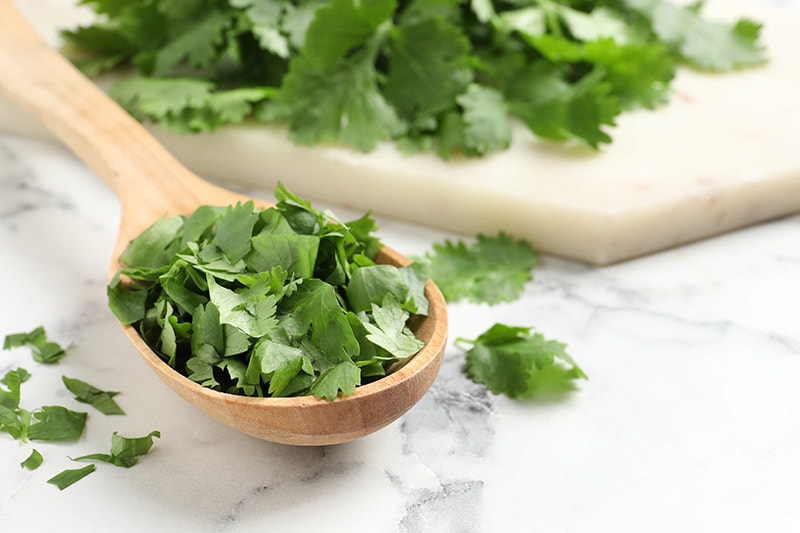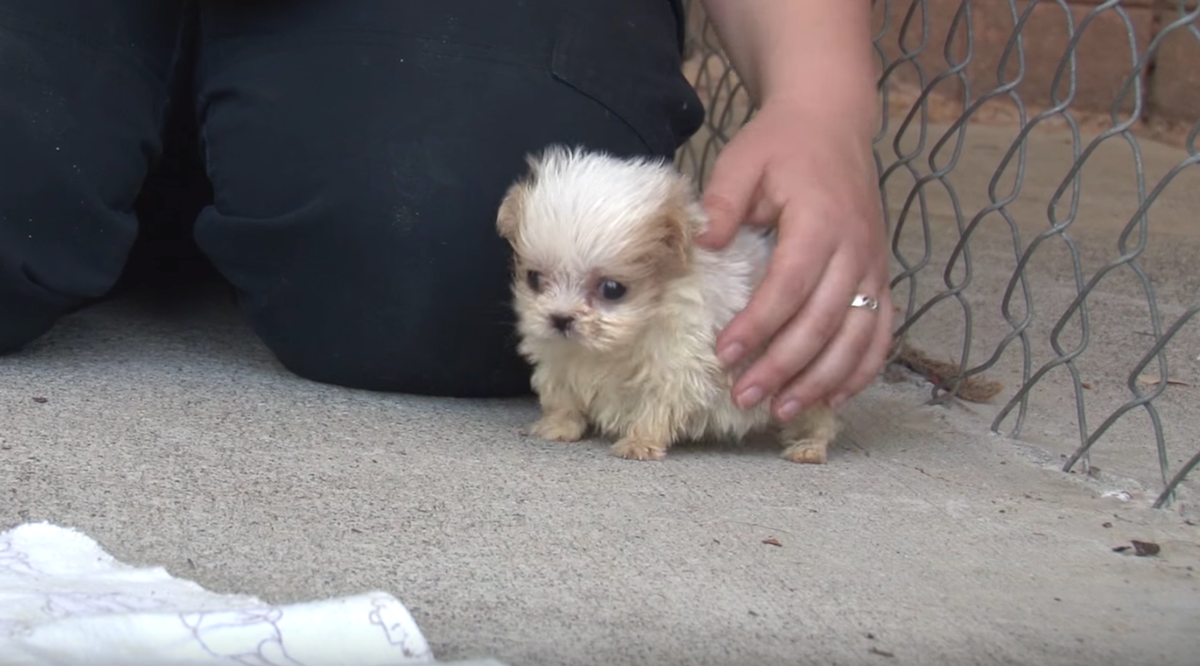
The information is current and up-to-date in accordance with the latest veterinarian research.
Learn more »
This article has been reviewed for factual accuracy by a qualified veterinarian, using information available at the time of publishing. Parrot owners are urged to consult with their veterinarian when making dietary decisions for their pet. This article is designed to provide general information but it does not take into account your pet’s health status or circumstances.
Cilantro is an ever-popular and controversial herb that has tons of medicinal benefits to humans. It is a common additive to many Mexican dishes as well as other recipes, giving it a particular flavor. If you are looking to add some extra vegetation to your parrot’s dish, you might wonder if this is an acceptable choice.
It turns out that not only are both coriander (cilantro seeds) and cilantro safe for your parrot, but it can also be extremely healthy. Keep in mind that while plant parts are a common feature in parrots’ diets, each species has its own unique set of dietary requirements, so make sure you are offering an appropriate diet for your pet’s species. Speak to your veterinarian if you are unsure. Let’s take a look at the benefits and considerations when serving cilantro to our beaked friends.
Cilantro Is Safe for Parrots
All parts of the cilantro plant, including stems, leaves, and seeds, are acceptable for parrot consumption. Even though parrots can undoubtedly eat this plant, some may prefer not to. As with humans, coriander and cilantro can have quite a strong taste, making it a less popular snack for some parrots.
Image Credit: ka_re, Pixabay
What Is the Difference Between Cilantro and Coriander?
Some people might think that coriander and cilantro are completely separate herbs. That is actually not true. Coriander is simply the seed and cilantro is the leaves and stem.
When it is in seed form, many people call it coriander, though coriander is correct when addressing the plant itself. So remember that coriander and cilantro are suitable for your parrot, as all parts of the cilantro plant are safe.
Health Benefits of Cilantro for Parrots
Just like for humans, cilantro can have a laundry list of health benefits for our parrot pets.
Riboflavin: Riboflavin directly impacts the growth and energy production of cells. It also helps to break down fat in the system.
Calcium: Calcium is an essential component in your parrot’s diet. If you have a female, she needs lots of calcium to help her formulate strong, sturdy eggs. Calcium also plays a vital role in bone growth and maintenance.
Iron: Iron is a mineral in the body that aids in producing hemoglobin and myoglobin. Together, these components work to provide oxygen to muscles.
Phosphorus: Phosphorus plays a vital role in healthy bone formation. It also contributes to the body’s ability to use carbohydrates and fat. It is important that phosphoruslevels are not too high relative to calcium; the ratio is not excessive in cilantro making it a healthy choice.
Potassium: Potassium plays a vital role in muscle contraction, blood pressure and growth.
Image Credit: marsraw, Pixabay
Considerations of Cilantro for Parrots
Too much cilantro might not be toxic to parrots, but it can cause gastrointestinal problems for your parrot. It can lead to uncomfortable signs like:
Introduce cilantro slowly and include it as part of an appropriate diet for your species of bird.
Fresh vs. Dried Cilantro
Fresh and dry cilantro are both suitable for our parent companions. However, fresh is preferred because it has all the nutrients intact. Dried versions might have some nutrients depleted. Also, parrots might not be quite as interested in cilantro in dried form.
However, some will love plucking at the flakes, so it is truly a matter of parrot preference. The flakes are less nutritious, but they are equally as safe.
Image Credit: lesterjamesuagum, Pixabay
How Often Can Parrots Eat Cilantro?
It would be best if you fed your parrots cilantro in moderation. A few leaves should suffice. You can also add coriander seeds to their pellet meals a few times a week.
If your parrots have never had cilantro before, slow introductions are best. Give them a tiny portion of cilantro and wait a few days before introducing another piece.
Conclusion
Now you know that your parrot can safely have cilantro or coriander. This plant is completely safe for your parrot friends, though it may cause mild allergic reactions in some sensitive birds. Always introduce any new food very slowly to your birds so you don’t make them sick.
Remember, moderation is key, as is knowing the dietary requirements for your pet’s species. Also, some parrots might prefer something other than cilantro’s sharp, strong taste. You might find that they give it a taste and don’t want to try it again. If that’s the case, that particular bird doesn’t need to have cilantro in their diet to be healthy.
Featured Image Credit: New Africa, Shutterstock






